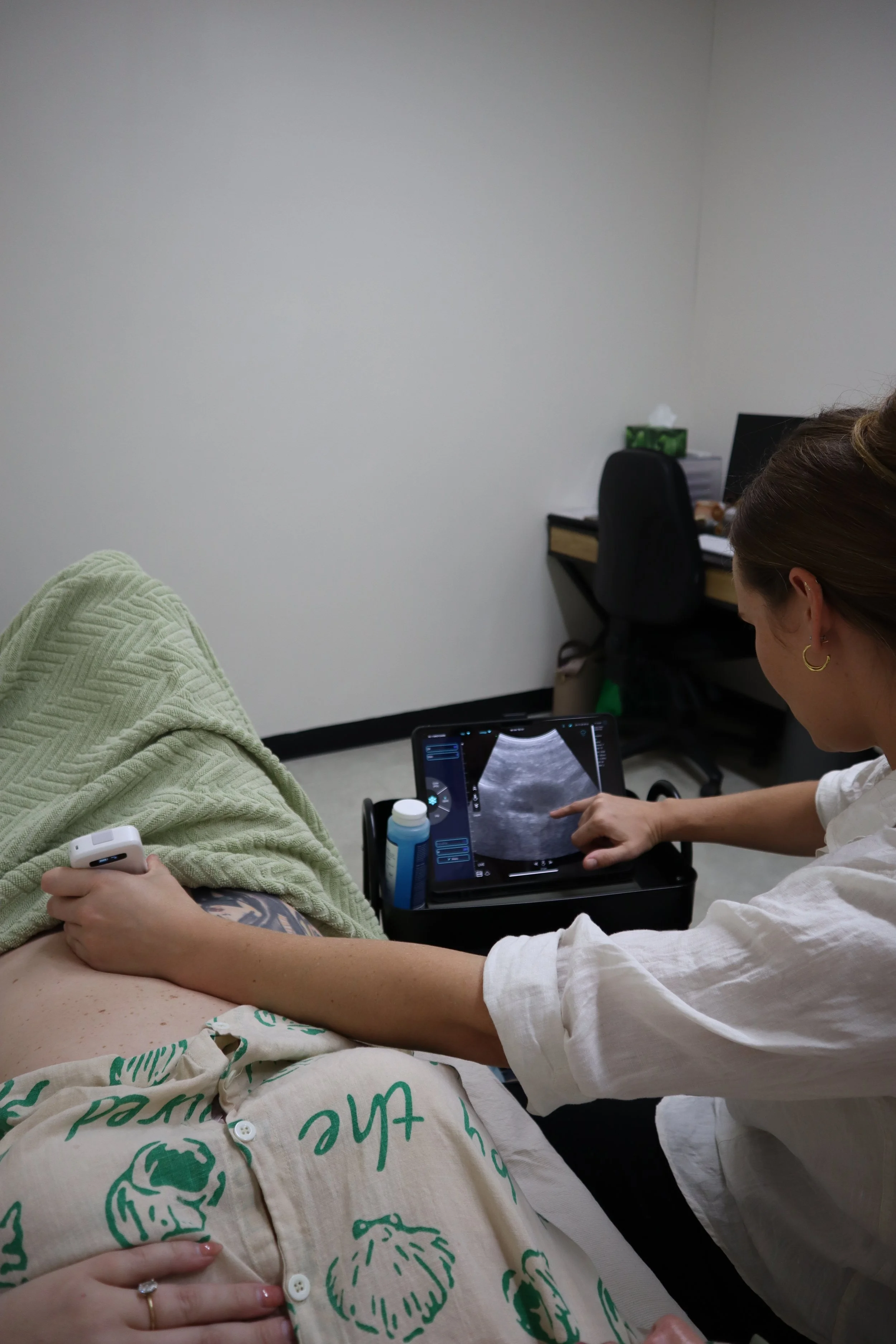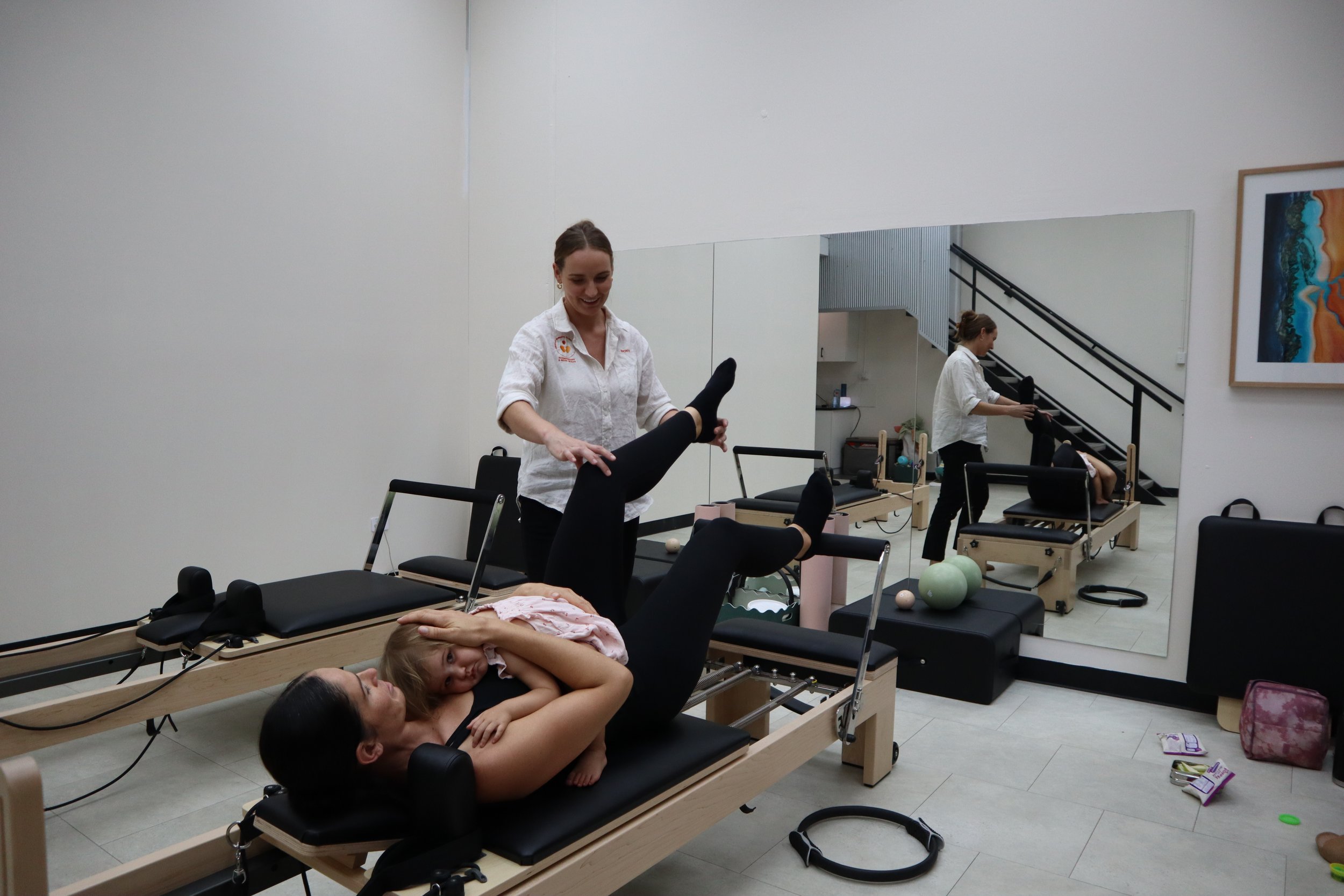-
There are three main types of urine incontinence;
Stress urinary incontinence (leaking with a sneeze, cough, jump, run, lifting heavy, sometimes sit to stand)
Urge urinary incontinence (leaking with an urge to wee)
Mixed urinary incontinence (stress and urge urinary incontinence)
Other bladder concerns include;
Urgency- having to rush to get to the toilet on time with an urge to wee
Pain- bladder pain syndrome
Frequency- feeling like you have to wee all the time
Nocturia- waking up multiple times a night to wee
-
Pelvic physiotherapists manage bowel and digestive tract issues usually in conjunction with medical management. We look at lifestyle factors as well as local factors (such as muscle strength etc.) to create a holistic management plan.
Some conditions we treat/ manage include;
Fecal (poo) incontinence- leaking of fecal matter, sometimes with an urge, sometimes without
Flatal (wind) incontinence- unable to hold in wind
Urgency- having to rush to the toilet for a bowel motion
Constipation including overflow constipation
Chronic diarrhoea
Any difficulties with passing bowel motions- pain, difficulty emptying, changes in sensations, incomplete emptying etc.
Irritable Bowel Syndrome (IBS), other inflammatory bowel conditions such as diverticulitis, Crohn’s disease etc.
Haemorrhoids and fissures
-
Pelvic organ prolapse is defined as the slipping of one of the pelvic organs from it’s usual resting state. This can be a gradual or a sudden onset.
Some symptoms include;
A feeling of heaviness or pressure in the vagina/ vulval region
A palpable lump/ bulge in the vagina
Difficulty emptying bladder and/ or bowels
Difficulty with tampons
Pain with intercourse
Pelvic physio’s are able to assess for prolapse and create a management plan based on individual findings.
-
A pelvic health physiotherapy consult should be routine antenatal care. Initial assessments include understanding your current pelvic health function and creating individualised exercise programs.
Later assessments include preparation for labour, education of early postpartum and managing any aches and pain that sometimes come along with pregnancy such as pelvic girdle pain and low back pain.
-
All women who have been pregnant, regardless of mode of delivery, should be offered a pelvic health assessment postpartum.
Usually, these are completed from 6 weeks postpartum onwards. They include a thorough screening of any current or potential pelvic floor concerns, assessment of abdominal muscle function, general movement assessment and provision of an individualised and tailored exercise program.
-
Sometimes, vaginal deliveries involve a cut (episiotomy) or a tear (varying grade) that are usually repaired with sutures. These can be painful and sometimes swollen. Therapeutic ultrasound is a safe, sterile and effective way of managing pain and discomfort associated with perineal injuries.
Other reasons you might seek physio in the early postpartum period is if you’re having any difficulty passing urine, any changes to the sensation of needing to pass urine, any significant leaking, any significant feeling of heaviness or bulging in the pelvis/ vulval region or any pain with passing urine or opening your bowels.
-
Whether breastfeeding, expressing or a combination of both, if your breasts are lactating you may experience blocked ducts.
Therapeutic ultrasound is a safe, effective and pain-free way to assist in the management of clearing painful blocked ducts. These appointments are quick and usually have an instant effect.
The ultrasound is like a “micro-massage” and helps to break-up and shift the blockage. Part of your consult also includes self management strategies and prevention strategies.
NOTE. We are not lactation consultants but are happy to assist with positioning advice if requested.
-
Menopause related symptoms are often kept quiet, resulting in women trying to manage them alone.
Pelvic physiotherapists play an integral role in the management of pelvic floor related symptoms (incontinence, pain, prolapse related symptoms) as well as assessing and treating the woman as a whole. This includes looking at exercise and lifestyle to maintain general strength, strong bones, manage weight gain and address psychological involvement.
Another common menopause related symptom is changes to the female sexual response/ function. Physiotherapy is a safe space to discuss any of these potential changes and gain valuable education and management strategies.
-
Pain in the pelvic, vulval, bowel and/or abdominal region is not something that women should have to put up with. Pelvic health physiotherapists are trained to manage pain whether spontaneous or provoked.
Assessments include a thorough understanding of not only the pelvis but the entire woman as a whole, ensuring we understand and manage all aspects that contribute to the multifactorial nature of pain, especially persistent pain.
If you have recently been diagnosed with endometriosis, or suspect you may have endometriosis or any other chronic pelvic pain condition, pelvic physiotherapists should be a part of your usual care team.
-
Including pelvic floor assessment and abdominal assessment post pregnancy, our return to exercise assessment are more than that. It’s about incorporating all these findings, plus the way a woman moves, how she breathes, how her spine moves, her hips moves, how she completes different exercises that are just as important.
We look at the individual as a whole because it’s more than just about the pelvic floor. We never want to tell a woman she can’t do something, so we find what she can do and adapt/ adjust as needed.
-
Surgeries involving the pelvic region should be followed-up with a pelvic floor physiotherapist. Especially those that are completed for pelvic organ prolapse (vaginal wall repairs, hysterectomies), incontinence (slings and wall repairs) and endometriosis.
Even pre-op can be a great place to start to get an understanding of how your pelvic floor is working, anything that you can work on now and what your goals might be after.
Women’s Health
What to Expect
Lots of Questions
We want to understand everything there is to know about your presenting condition, which involves a lot of questions to ensure we can get to the cause and not just treat the symptoms.
Some of the questions we ask can be quite sensitive in nature, and it’s okay if you don’t feel comfortable answering them. However, the more information you give us the more knowledge we will have to understand the full picture to be able to best help you.
Some topics we may ask you about include bladder and bowel habits, obstetric history, gynaecology history, sexual function and any history of pain, particularly pelvic pain.
We will also ask about your general health, physical activity, diet, sleep habits and overall wellbeing.
Most importantly, we want to know your goals, what you want out of physiotherapy and your beliefs around what might help you to achieve your goals.
Physical Assessment
A physical assessment helps us understand what might be causing or contributing to your concerns.
The gold standard assessment tool for pelvic health concerns is an internal examination. This gives us the most amount of information about how your muscles are sitting at rest, how they contract/ relax and coordinate with activities. It also determines if there are any tender points or pain. An internal examination is only ever completed with your explicit consent, you are always in control and are able to stop at any time.
Other ways in which a therapist can assess is through the use of a real-time ultrasound machine where a probe sits on your lower tummy. Whilst there are limitations this is still a good assessment tool, especially to see bladder function.
An examination also usually includes looking at the way you’re moving, how your muscles are activating and how you’re breathing.
Treatment & Management Plan
At the end of your consult you should overall feel heard and reassured. Our therapists pride themselves on listening and addressing your main concerns.
All consults conclude with a written exercise program and/ or management plan. Sometimes you might have a bit of extra homework such as a bladder diary, a bowel diary, a food diary or tracking symptoms over a period of time.
As everyone is individual and everyone’s bodies are unique, it can be challenging to give specific timeframes to expect changes in symptoms. Having said this, our therapists will give a guide based on you as an individual and what the latest evidence tells us.
If there are any other health providers involved in your care, with your consent, we will share relevant information if required.
We want to empower you to take control of your rehab and care, and take the time to make sure that what we recommend is achievable and what you want.



